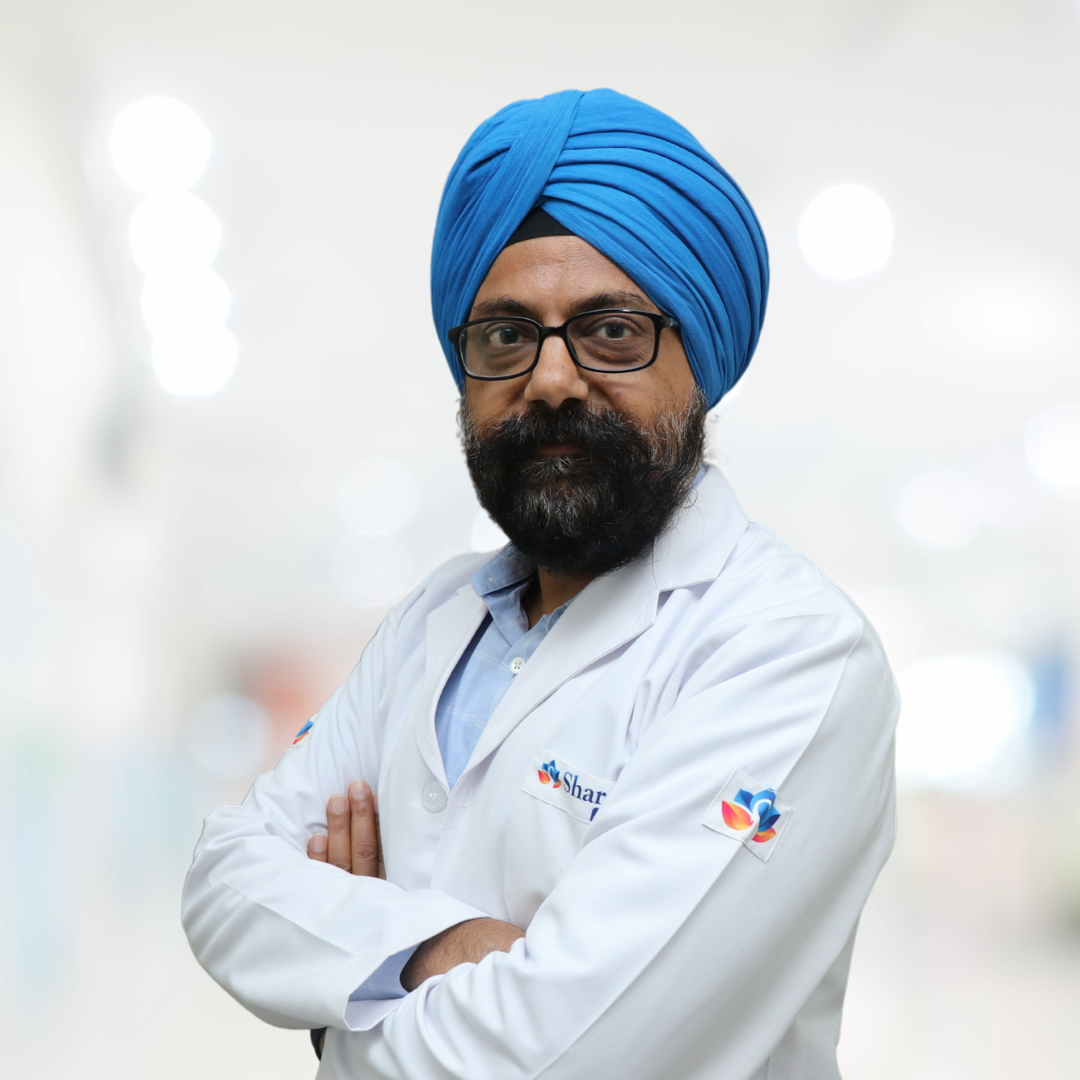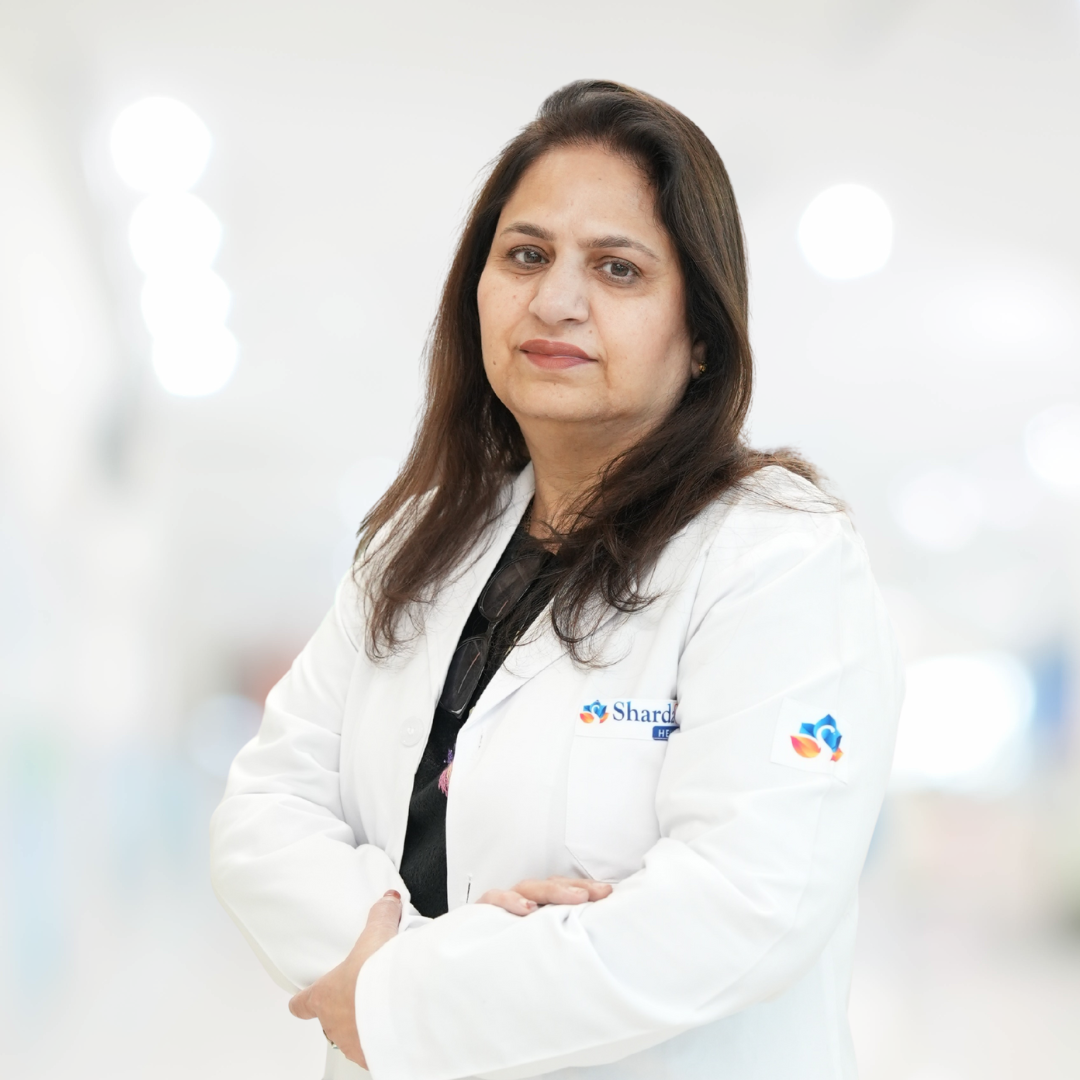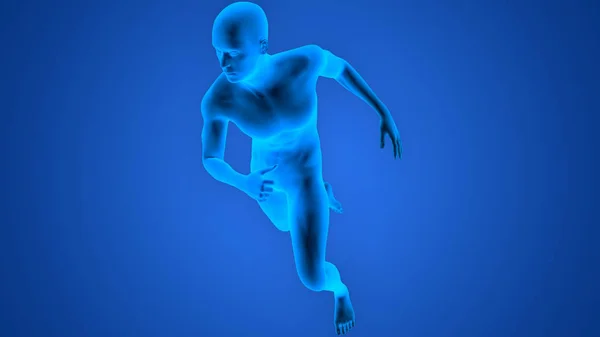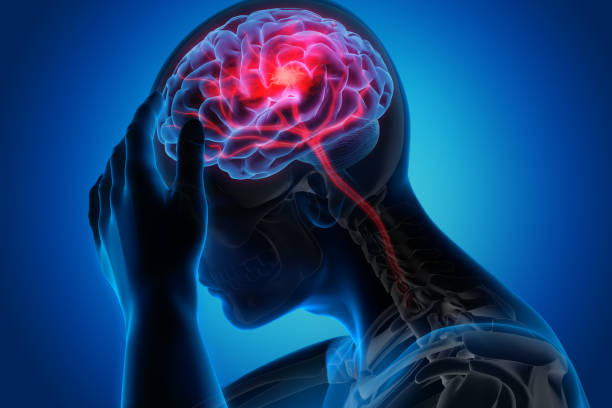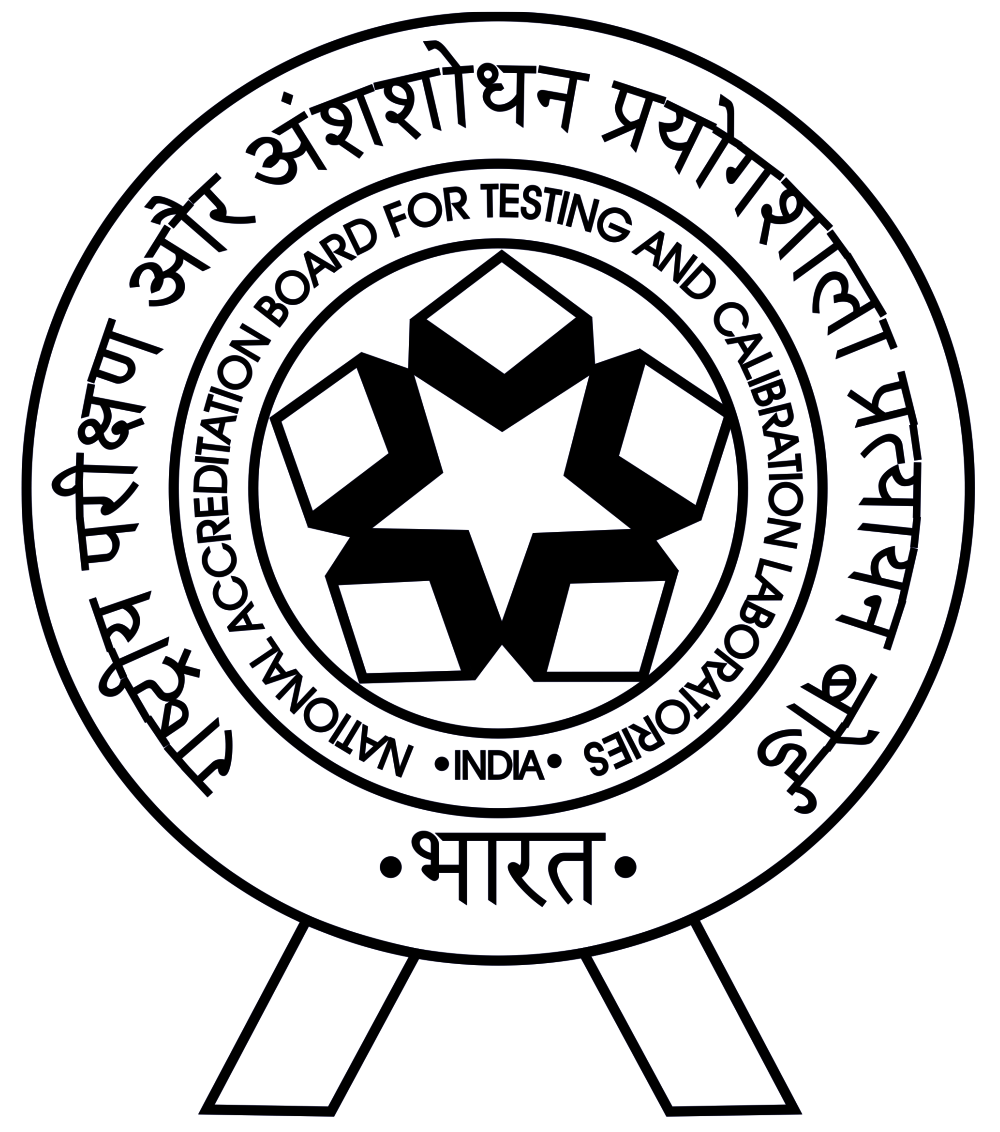
Advanced Interventional Neuroradiology for Brain, Spine & Vascular Disorders at ShardaCare – Healthcity
Interventional Neuroradiology is a specialized field of Medicine practised at ShardaCare - Healthcity, focusing on using Minimally Invasive Techniques to Diagnose and Treat Brain, Spine, and Neck Disorders. This innovative approach utilizes advanced imaging technologies like X-Rays, CT Scans, MRI Scans, and Angiography to guide the insertion of tiny instruments through Blood Vessels to the affected area. These instruments can deliver Medications, Block Blood Flow, Open Blocked Vessels, or Remove Clots or Foreign Objects. Compared to Traditional Surgery, Interventional Neuroradiology offers advantages such as Reduced Pain, Shorter Recovery Time, Lower Infection Risk, and Less Damage to surrounding tissues.
ShardaCare - Healthcity offers Interventional Neuroradiology services to address various Neurological conditions, including:
- Stroke: Caused by a Blockage or Plaque in Brain Blood Vessels, leading to Reduced Blood Flow and Tissue Damage.
- Brain Aneurysm: Weak spots in Brain Blood Vessels that can rupture and cause Bleeding.
- Brain and Spinal AVMs: Abnormal connections between Arteries and Veins, which can lead to Bleeding, Seizures, or Nerve issues.
- Carotid Stenosis: Narrowing or Blockage of the main Blood Vessels supplying the Brain.
- Skull Base Tumours: Growth near the Brain and Vital Nerves at the base of the Skull.
- CCFs (Carotid Cavernous Fistulas): Abnormal connections between Arteries and Veins behind the Eye, causing Eye problems.
- DAVFs (Dural Arteriovenous Fistulas): Abnormal connections between Arteries and Veins in the Brain or Spine covering, resulting in Bleeding or Nerve problems.
- Extracranial Atherosclerosis: Narrowing or Blockage of Blood Vessels supplying the Head and Neck.
- Extracranial and Paraspinal Vascular Malformations: Abnormal clusters of Blood Vessels causing Pain, Bleeding, or pressure on nearby structures.
ShardaCare - Healthcity is equipped with advanced facilities and cutting-edge technology to perform a wide range of Interventional Neuroradiology procedures, including:
- Brain Aneurysm Coiling: This procedure involves inserting a thin Tube (Catheter) into the BrainAneurysm and filling it with Tiny Metal Coils to prevent Rupture and Bleeding.
- Brain and Spinal Arteriovenous Malformations (AVM) Embolization: Using glue-like substances or particles, this procedure blocks abnormal connections between Arteries and Veins to reduce Bleeding and improve symptoms.
- Treatment of Brain and Spinal Dural Arteriovenous Fistulas (DAVF): By Injecting substances or Coils into the abnormal connection, this procedure closes the Fistula and restores normal Blood Flow, reducing Bleeding and Neurological deficits.
- Carotid Angioplasty and Stenting (CAS): This procedure widens narrowed or blocked Carotid Arteries using a balloon-tipped catheter and places a metal mesh tube (stent) to keep the Artery open and prevent future narrowing.
- Skull Base Tumours (SBT) Pre-Operative Embolization: Before surgery, the Blood supply to skull base Tumours is blocked to reduce Blood Loss and make surgery safer.
- Carotid Cavernous Fistulas (CCF) Embolization: By injecting Coils or Glue into the abnormal connection between the Carotid Artery and Cavernous Sinus, this procedure restores normal Blood Flow and resolves Eye problems.
- Intracranial Angioplasty and Stenting: Similar to CAS, this procedure treats narrowed Brain Vessels or Aneurysms inside the brain.
- Intra-Arterial Thrombolysis in Acute Ischemic Strokes: Using a Catheter, a clot-busting drug is injected directly into the blocked Artery to dissolve the clot and restore Blood Flow, preventing Brain Damage.
- Cerebral Dural Venous Sinus Thrombolysis: This procedure dissolves clots in the Veins that Drain Blood from the Brain, treating conditions like Cerebral Venous Sinus Thrombosis or Stenosis.
ShardaCare - Healthcity ensures that these procedures are performed with utmost precision and care to provide effective treatment for neurological conditions.
Looking for an Expert
ShardaCare - Healthcity is home to some of the eminent Doctors in the world.
Book an Appointment

